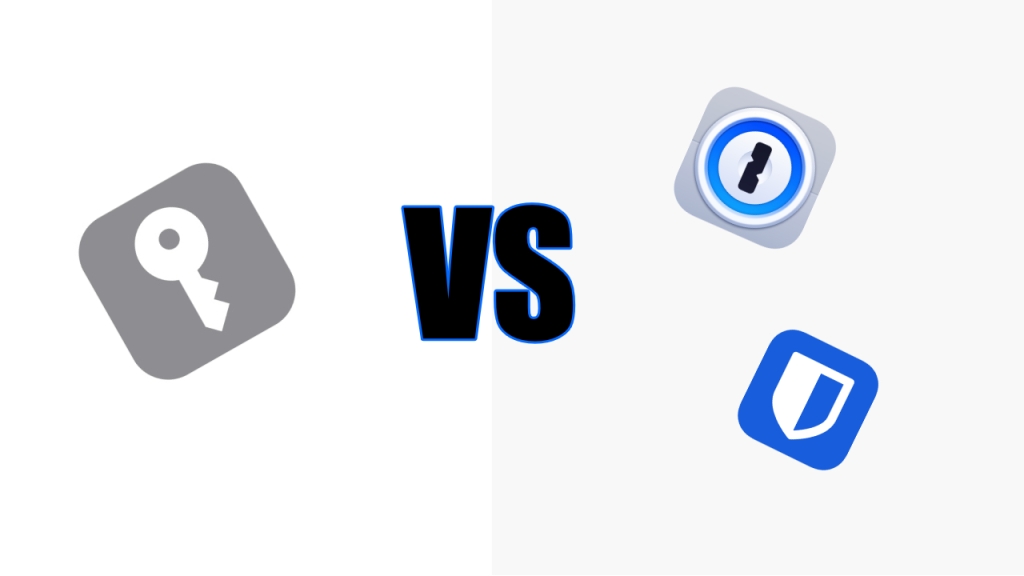
A report today from Bloomberg suggests that after years of speculation and “it just makes sense” pontification, Apple will be releasing a standalone Passwords app as part of iPadOS 18, iOS 18, and macOS 15. The expectation is that this app will essentially pull the “Passwords” interface from the Settings app into its own thing, though I think its reasonable to assume the company will add some additional polish and functionality if they’re going to the trouble of making an app. The app is also rumored to support both VisionOS and Windows, though I wonder if the latter might be delivered through an improved Chrome extension.
This app won’t Sherlock 1Password or Bitwarden
Whenever Apple decides to add a new first party app, the initial assumption is always that Apple will Sherlock some prominent third party option. Last year, it was the Journal app killing Day One. Years before that, it was iPadOS’ Sidecar feature killing Luna Display. In the majority of cases, these apps end up doing just fine, or become even better. Astropad, the developers of Luna Display, have written about how Apple competing with them forced them to think outside for the Apple ecosystem and re-engineer their product to be cross-platform. This allowed them to expand their market to include users on Windows. They also had the benefit of being an option for Mac users on older versions of macOS that didn’t support Sidecar.
The same will be true for password managers like 1Password or Bitwarden. Both apps have robust cross-platform and web support that prevents users from being locked into a single mobile platform. Apple’s idea of “cross-platform” is generally “iPhone, iPad, and Mac”. Their password manager app will reportedly be a little better in this regard, but I’d still be shocked if they released this app for Android (though they should).
Another benefit in favor of third party options is the frequency of updates. Apps built into iOS/iPadOS generally only receive new features with the yearly OS updates (which are actually spread throughout the year more than ever). If 1Password comes up with some new innovative feature, they can ship it whenever they want, whereas Apple, by their own rules, would have to wait for September or the following year.
Apple’s apps can’t be too good
People often complain about Apple’s first party apps missing features that have been in third party options for years. It has been my opinion that for the iPadOS/iOS software ecosystem to be healthy, Apple’s apps cannot be the best options in their respective categories. Third party developers need space to build on the capabilities that are included with base operating system. If the included apps are too good, there’s less incentive for a user to explore the App Store for more capable options. And, if you want to take the cynical view, that prevents Apple from capturing their 30% from further App Store sales.
The built-in apps are designed to be good enough for most people most of the time. They are needed to help provide value for the iPad or iPhone you just purchased. Apple facilitates this by implementing features that appeal to the broadest number of users possible, while leaving more advanced capabilities to third parties. Sometimes Apple will add unique features to their apps, but by and large, it’s healthier for the ecosystem if they leave room for others innovate. The App Store provides a great avenue for users to find more capable software.
What a healthy app ecosystem looks like
From the day the App Store opened, Apple’s apps were no longer the best apps on iPhone. And yes, we did have some early struggles with Apple rejecting apps that duplicated system functionality. Once Apple over that dumb issue, we started seeing more innovative and capable titles hit the App Store. Developers had been chomping at the bit to write official iPhone apps from day 1, and they did not disappoint.
This was in contrast to Android at the time, where, I’d argue, Google apps were the best apps on the platform for years. It took until Android 5 and the introduction of Material Design for Google to elevate the importance for strong design throughout the Android ecosystem, prompting third party apps to get better. Today, I’d argue for the vast majority of apps, the iOS and Android versions are in general parity in functionality and polish.
Conclusion
Apple has to maintain a delicate balance with their first party apps. The apps need to useful and provide value. But if they support every feature they could, that’s less reason for users to seek out third party options. Apple entering a category usually brings more attention to it, so apps like 1Password and Bitwarden potentially stand to benefit from the competition from Apple. I would expect these apps to continue to provide features and capabilities beyond what Apple’s app will offer, and that how it should be in a healthy app ecosystem.

![iPadOS 18 FINALLY Adds the Ability To Format External Storage [VIDEO]](https://slatepad.org/wp-content/uploads/2024/06/untitled.png?w=1024)



Leave a comment